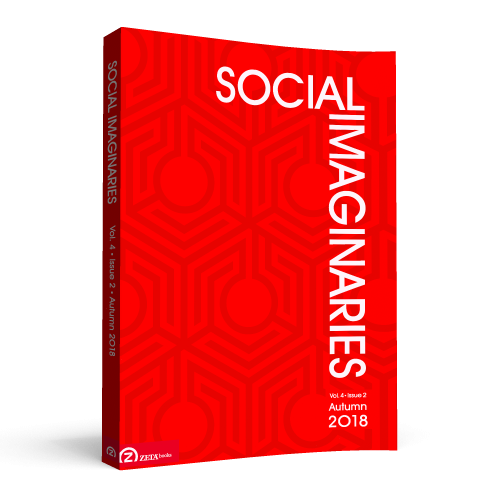North America’s Metropolitan Imaginaries
North America’s Metropolitan Imaginaries
Author(s): Jeremy C A SmithSubject(s): Philosophy, Social Sciences, Visual Arts
Published by: Zeta Books
Keywords: social imaginary; metropolises; immigration, design; visual arts
Summary/Abstract: Scholars of modernity have taken a particular interest in processes of urbanization and—thinking of Simmel, Benjamin, Mumford and Weber—the character of different varieties of city. From a different angle, notions of urban imaginary have gained greater purchase in the field of contemporary urban studies in comparative analysis of varieties of city. This essay begins with notes on both classical accounts of the city in social theory and current concepts of urban imaginaries. The notes revolve around the essay’s main topic: the institution of cities of New World, specifically those of the United States and Canada. Paralleling Castoriadis’ conception of the imaginary institution, the present author argues for a more exact notion of metropolitan imaginaries, differentiated from the broader subject of urban imaginaries. ‘Metropolitan imaginaries’ denotes processes of urbanization at the heart of networks of migration, transport, and flows of capital and culture. As part of larger imaginaries, metropolises generate immigrant cities. The specific kind of creation in question produces creativity also by concentrating intellectual and creative schools of design in architecture and visual culture. In sum, metropolises are not merely part of networks of connection and creation; they produce networks and act as the hubs of interaction and creativity within larger social imaginaries. The essay explores this argument in the contexts of US and Canadian modernity and state formation, with specific foci on New York, Chicago, and Toronto. The conclusion notes two limitations to the case presented here and sketches planned directions for future research.
Journal: Social Imaginaries
- Issue Year: 4/2018
- Issue No: 2
- Page Range: 43-69
- Page Count: 27
- Language: English
- Content File-PDF

